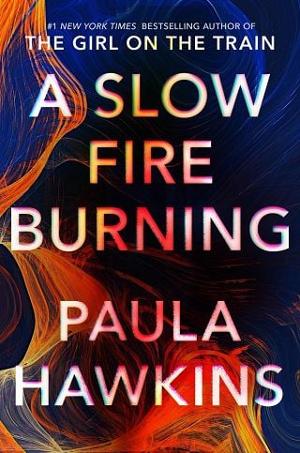Chapter Three
THREE
Mrs. Myerson? Do you need to sit down? There you go. Just breathe. Would you like us to call anyone, Mrs. Myerson?”
Carla sank down onto her sofa. She folded in half, pressing her face to her knees; she was whimpering, she realized, like a dog. “Theo,” she managed to say. “Call Theo, please. My husband. My ex-husband. He’s in my phone.” She looked up, scanning the room; she couldn’t see the phone. “I don’t know where it is, I don’t know where I—”
“In your hand, Mrs. Myerson,” the woman detective said gently. “You’re holding your phone in your hand.”
Carla looked down and saw that so she was, gripping her mobile tightly in her violently trembling hand. She shook her head, handing the phone to the policewoman. “I’m going mad,” she said. The woman pressed her lips into a small smile, placing a hand on Carla’s shoulder for just a moment. She took the phone outside to make the telephone call.
The other detective, Detective Inspector Barker, cleared his throat. “I understand that Daniel’s mother is deceased, is that right?”
Carla nodded. “Six . . . no, eight weeks ago,” she said, and watched the detective’s eyebrows shoot up to where his hairline might once have been. “My sister fell,” Carla said, “at home. It wasn’t . . . it was an accident.”
“And do you have contact details for Daniel’s father?”
Carla shook her head. “I don’t think so. He lives in America, he has done for a long time. He’s not involved, he’s never been involved in Daniel’s life. It’s just . . .” Her voice cracked; she took a deep breath, exhaled slowly. “It was just Angela and Daniel. And me.”
Barker nodded. He fell silent, standing ramrod straight in front of the fireplace, waiting for Carla to compose herself. “You’ve not lived here very long?” he asked, after what Carla imagined he thought to be a respectful pause. She looked up at him, bemused. He indicated with one long forefinger the boxes on the dining room floor, the paintings leaning against the wall.
Carla blew her nose loudly. “I’ve been meaning to hang those paintings for the best part of six years,” she said. “One day I’ll get round to getting picture hooks. The boxes are from my sister’s house. Letters, you know, photographs. Things I didn’t want to get rid of.”
Barker nodded, he folded his arms, shifting his weight from one foot to the other, he opened his mouth to say something but was cut off by the front door slamming shut. Carla jumped. The woman detective, Detective Constable Chalmers, scuttled into the room, ducking her head apologetically. “Mr. Myerson’s on his way. He said he won’t be long.”
“He lives five minutes away,” Carla said. “Noel Road. Do you know it? Joe Orton lived there in the sixties. The playwright? It’s where he was killed, bludgeoned to death, I think, or was it stabbed?” The detectives looked at her blankly. “It’s not . . . relevant,” Carla said; she thought for a horrible moment she might laugh. Why had she said that, anyway? Why was she talking about Joe Orton, about people being bludgeoned? She was going mad. Barker and Chalmers seemed not to notice, or not to mind. Perhaps everyone behaved like a lunatic when they received news of a family member murdered.
“When did you last see your nephew, Mrs. Myerson?” Barker asked her.
Carla’s mind was completely blank. “I . . . Christ, I saw him . . . at Angela’s house. My sister’s house. It’s not far, about twenty minutes’ walk, over the other side of the canal, on Hayward’s Place. I’ve been sorting out her things, and Daniel came to pick some stuff up. He’d not lived there for ages but there were still some of his things in his old bedroom, sketchbooks, mostly. He was quite a talented artist. He drew comics, you know. Graphic novels.” She gave an involuntary shudder. “So that was, a week ago? Two weeks? Jesus, I can’t remember, my head is just wrecked, I . . .” She scraped her nails over her scalp, pushing her fingers through the short crop of her hair.
“It’s perfectly all right, Mrs. Myerson,” Chalmers said. “We can get the details later.”
“So, how long had he been living there down on the canal?” Barker asked her. “Do you happen to know when—”
The door knocker clacked loudly and Carla jumped, again. “Theo,” she breathed, already on her feet, “thank God.” The woman got to the door before Carla could; she ushered Theo, red-faced, perspiring, into the hall.
“Christ, Cee,” he said, grabbing hold of Carla, pulling her tightly against him. “What in God’s name happened?”
The police went over it all again: how Carla’s nephew, Daniel Sutherland, had been found dead on a houseboat moored near De Beauvoir Road on Regent’s Canal that morning. How he’d been stabbed, multiple times. How he’d likely been killed between twenty-four and thirty-six hours before he’d been found, how they’d be able to narrow that down in due course. They asked questions about Daniel’s work and friends and did they know of any money troubles and did he take drugs?
They didn’t know. “You weren’t close?” Chalmers offered.
“I hardly knew him,” Theo said. He was sitting at Carla’s side, rubbing the top of his head with his forefinger, the way he did when he was anxious about something.
“Mrs. Myerson?”
“Not close, no. Not . . . well. My sister and I didn’t see each other very often, you see.”
“Despite the fact she lived just over the canal?” Chalmers piped up.
“No.” Carla shook her head. “We . . . I hadn’t spent time with Daniel for a very long time,” Carla said, “not really. Not since he was a boy. When my sister died I saw him again, as I said. He’d been living abroad for a while, Spain, I think.”
“When did he move to the boat?” Barker asked.
Carla pressed her lips together, shaking her head. “I don’t know,” she said. “I honestly don’t.”
“We had no idea he was living there,” Theo said.
Barker gave him a sharp look. “He must be fairly close to your home, though. Noel Road, wasn’t it? That’s what? About a mile from where the boat was?”
Theo shrugged. “That may well be,” he said, and he rubbed his forehead harder, the skin turning quite pink up near his hairline. He looked as though he’d been in the sun. “That may well be. But I’d no idea he was there.”
The detectives exchanged a look. “Mrs. Myerson?” Barker looked at her.
Carla shook her head. “No idea,” she said quietly.
The detectives fell silent then, for quite a long time. They were waiting for Carla to say something, she imagined, for her or Theo to speak. Theo obliged. “You said . . . twenty-four hours, is that right? Twenty-four to thirty-six hours?”
Chalmers nodded. “We’re estimating time of death sometime between eight p.m. Friday night and eight a.m. Saturday morning.”
“Oh.” Theo was rubbing his head again, staring out the window.
“Have you thought of something, Mr. Myerson?”
“I saw a girl,” Theo said. “Saturday morning. It was early—six, maybe? Out on the towpath, going past my house. I was standing in my study and I saw her; I remember her because she had blood on her. On her face. On her clothing, I think. She wasn’t drenched in it or anything, but . . . but it was there.”
Carla gawped at him, incredulous. “What are you talking about? Why didn’t you tell me?”
“You were sleeping,” Theo said. “I got up, I was going to make coffee, and I went to get my cigarettes from the study. I saw her, out of the window. She was young, probably not much more than twenty, and she was coming along the towpath. Limping. Or swaying, maybe? I thought she was drunk. I didn’t . . . really think much of it, because London is awash with strange, drunk people, isn’t it? That time of day, you often see people, on their way home. . . .”
“With blood on them?” Barker asked.
“Well, perhaps not. Perhaps not the blood. That’s why I remembered her. I thought she’d fallen, or been in a fight, I thought . . .”
“But why didn’t you say anything?” Carla said.
“You were asleep, Cee, I didn’t think—”
“Mrs. Myerson was asleep at your home,” Chalmers interrupted, frowning. “Is that right? You stayed the night with Mr. Myerson?”
Carla nodded slowly, her expression one of utter bewilderment. “We’d had dinner on Friday; I stayed over.”
“Although we’re separated, we still have a relationship, you see, we often—”
“They don’t care about that, Theo,” Carla said sharply, and Theo flinched. She pressed a Kleenex to her nose. “Sorry. I’m sorry. But it’s not important, is it?”
“We never know what’s going to be important,” Barker said enigmatically, and started moving toward the hall. He handed out business cards, said something to Theo about formal identification, about family liaison, about staying in touch. Theo nodded, slipping the business card into his trouser pocket, and shook the detective’s hand.
“How did you know?” Carla asked suddenly. “I mean, who was it, who reported . . . who found him?”
Chalmers looked at her boss, then back at Carla. “A woman found him,” she said.
“A woman?” Theo asked. “A girlfriend? Was she young? Slim? I’m just thinking of the person I saw, the one with the blood, perhaps she—”
Chalmers shook her head. “No, this was someone living on another of the narrowboats, not a young woman—middle-aged, I’d say. She noticed that the boat hadn’t moved in some time and went to check up on him.”
“She didn’t see anything, then?” Theo asked.
“She was very helpful, actually,” Barker said. “Very observant.”
“Good,” Theo said, rubbing the top of his head. “Very good.”
“A Mrs. Lewis,” Barker added, and Chalmers corrected him: Ms. “That’s right,” he said. Carla watched the color drain from Theo’s face as Barker went on. “Ms. Miriam Lewis.”
 Fullepub
Fullepub 



